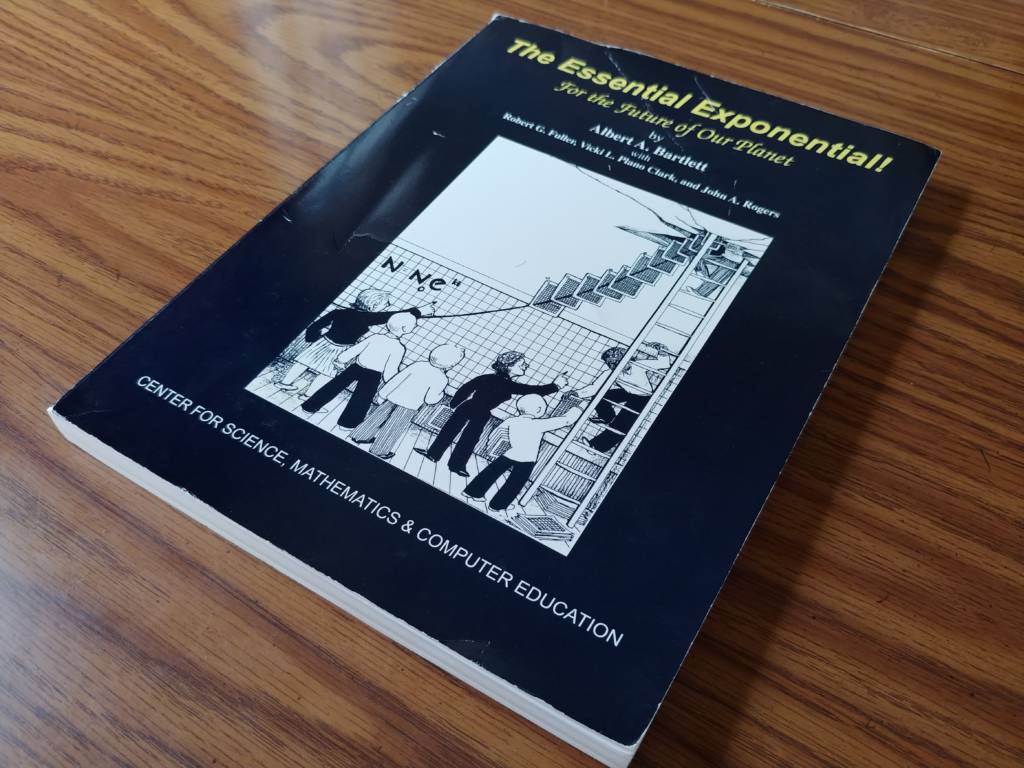
I have not rented space in a former Minuteman missile silo, nor have I stockpiled a cubic kilometer of toilet paper or a reservoir’s worth of PET water bottles. But Covid-19 is extremely serious, and it’s serious because of something Al Bartlett told me 15 years ago and told many thousands of others before and after:
“The greatest shortcoming of the human race is our inability to understand the exponential function.”
Al Bartlett
The old standby as far as illustrating our cognitive limitations with respect to the exponential is the old rice-grains-on-a-checkerboard (or, if you prefer a chess board) thought experiment. Put one grain of rice on the first square and double the quantity on each of the next 63 squares (the second square has two rice grains, the third four, the fourth eight, and so on). How many grains of rice do you have on the 64th square?
If you guessed 18,446,744,073,709,551,615 – right on! (before I looked it up, it had been on the tip of my tongue). That number is about 100 million times greater than the number of stars in the Milky Way galaxy. An easier and only slightly less dumbfounding exponential truth is that a 7% annual growth rate represents a doubling every 10 years.
This Twitter thread about coronavirus (click on the first “show this thread” you see if you do want to check it out) by Liz Specht of the Good Food Institute demonstrates the exponential function in action with respect to the virus at hand. Using conservative assumptions, Specht found that the exponential expansion of the virus (going viral being an exponential function) would fill every U.S. hospital bed by May 8. And the news gets worse from there.
That’s because Covid-19 is exponential math across human lungs.
As you might imagine, no shortage of Twittiots cited such evidence as the sharply diminished growth in new cases in China as being absolute proof that Specht was somehow making all this up (epidemiologists’ warnings aside). These folks fail to note that the exponential expansion of the virus was only slowed – in this case mightily – by draconian quarantining, hospital-construction, and other measures that we in the United States have little chance of, well, replicating.
Al, a University of Colorado physicist, teacher, and population-control proponent who gave his lecture, died in 2013. I wrote about him back when I was a reporter with the Boulder Daily Camera. He gave his talk, Arithmetic, Population and Energy, 1,742 times. Specht did a postdoc there – perhaps she sat in on one of those talks.
She would have found him, as I did, a delightful guy. He would have considered our coronavirus pandemic not only a grave threat, but also a teaching opportunity on his favorite topic.
